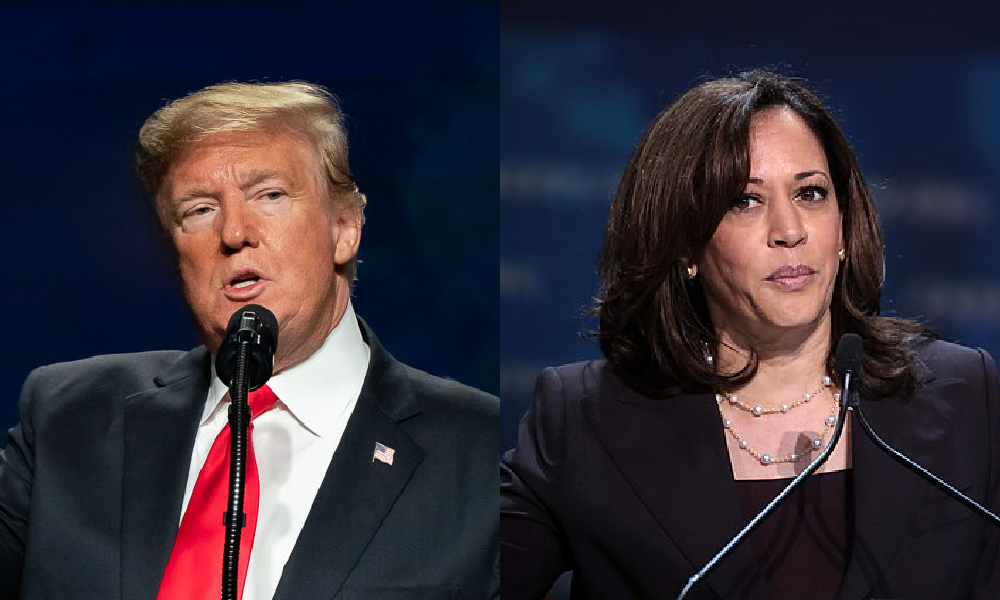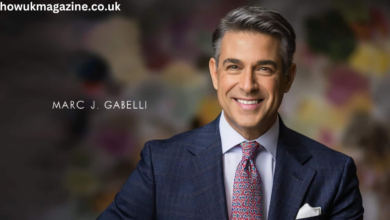Presidential debates are more than just a series of televised events; they are pivotal moments that can shape the course of an election. These debates provide a platform for candidates to showcase their policies, challenge their opponents, and connect with voters in a direct and dynamic way. This article will explore the history, format, strategies, and impact of presidential debates, offering insights into why they matter in American politics.
History of Presidential Debates
The First Presidential Debate: A Historic Moment

The history of presidential debates in the United States dates back to the 1960 election between John F. Kennedy and Richard Nixon. This landmark event was the first-ever televised presidential debate, and it changed the landscape of political campaigning forever. The debate took place on September 26, 1960, and it was watched by an estimated 70 million Americans.
Kennedy’s youthful charisma and confident demeanor resonated with viewers, while Nixon, recovering from an illness, appeared less vigorous. This stark contrast highlighted the power of visual presentation in politics. As a result, many believe this debate played a crucial role in Kennedy’s narrow victory.
Evolution of Debates Over the Years
Since that first debate, the format and frequency of presidential debates have evolved significantly. The Commission on Presidential Debates (CPD), established in 1987, has standardized the rules and structure of modern debates. These changes have included the introduction of town hall formats, multiple moderators, and varying time limits for responses.
Debates have become a staple of the election process, with major networks dedicating prime-time slots to cover these events. As the importance of media grew, so did the complexity of debates. Candidates now prepare rigorously, using focus groups and mock debates to hone their skills and address potential pitfalls.
The Role of Media in Shaping Debates
The media plays an integral role in framing the narrative surrounding presidential debates. News outlets analyze candidates’ performances, offering instant reactions and critiques. Social media platforms amplify these discussions, allowing real-time commentary from viewers and pundits alike.
This immediacy can influence public perception, making it crucial for candidates to be on their game. A single misstep can lead to viral clips that dominate news cycles, overshadowing key policy points. As such, debates have become not just a platform for policy discussion but a battleground for narrative control.
The Debate Format: Structure and Strategy
Common Formats in Presidential Debates
Presidential debates typically follow a few common formats. The most familiar are the traditional debate formats, which involve direct exchanges between candidates. These are often segmented into timed segments, where candidates respond to questions posed by moderators.
Another popular format is the town hall meeting, where candidates engage with undecided voters in a more personal setting. This format allows for spontaneous questions and a more informal atmosphere, enabling candidates to demonstrate their empathy and relatability.
Preparation: The Candidate’s Playbook
Preparation for a presidential debate is a meticulous process. Candidates often spend weeks or even months preparing, involving their campaign teams, advisors, and sometimes even actors to play their opponents. The goal is to anticipate every possible question and response, ensuring that candidates can deliver their messages clearly and persuasively.
Mock debates are a critical component of this preparation. These sessions simulate the actual debate environment, allowing candidates to practice their timing, refine their answers, and develop effective rebuttals. Additionally, candidates often work on their body language and delivery, knowing that non-verbal cues can significantly impact viewers’ perceptions.
The Importance of Messaging and Timing
In the fast-paced environment of a presidential debate, messaging and timing are everything. Candidates must strike a balance between delivering their key points and responding to their opponents. Effective communication skills are vital, as candidates must be able to articulate their positions clearly and succinctly.
Timing is equally important. A well-timed attack or a thoughtful response can shift the momentum of the debate. Candidates often rely on their teams to provide cues, ensuring they stay on message while also reacting appropriately to their opponent’s remarks. This delicate dance of offense and defense is what makes debates so engaging for viewers.
The Impact of Debates on Voter Perception
Shaping Public Opinion
Presidential debates can significantly influence public opinion, especially among undecided voters. Studies show that many voters form their opinions based on candidates’ performances during these events. A strong debate performance can galvanize support, while a weak showing can lead to a loss of confidence.
Debates provide a rare opportunity for candidates to connect with voters in real-time, addressing their concerns and demonstrating their competence. This direct engagement can be more impactful than traditional campaign ads, which often lack the personal touch that debates offer.
The Role of Fact-Checking
In an era of misinformation, fact-checking has become an essential part of the debate process. Many media organizations provide real-time fact-checking during and after the debates, holding candidates accountable for their statements. This scrutiny can sway public opinion, especially if a candidate is found to be misleading or inaccurate.
Voters increasingly rely on these fact-checking services to evaluate candidates’ credibility. As a result, candidates must be diligent in their statements, knowing that inaccuracies can be highlighted and scrutinized almost immediately. This added pressure adds another layer of strategy to debate preparation.
The Long-Term Effects on Campaigns
The effects of a presidential debate can ripple throughout the entire campaign. Candidates who perform well often see a boost in polls, increased fundraising, and heightened media coverage. Conversely, a poor performance can lead to a decline in support and may even force a campaign to recalibrate its strategy.
Additionally, debates can serve as a turning point in a campaign. For instance, a candidate who is trailing in the polls might use a strong debate performance to regain momentum. This unpredictability is part of what makes presidential debates so compelling for both candidates and voters alike.
Notable Presidential Debates in History
The Kennedy-Nixon Debate: A Game-Changer
As previously mentioned, the 1960 Kennedy-Nixon debate was a watershed moment in American politics. It showcased the influence of television and set the stage for how candidates would approach debates in the future. The visual medium became an essential component of campaigning, forever altering the way candidates presented themselves.
This debate not only shaped the 1960 election but also laid the groundwork for future debates. Candidates learned the importance of image and presentation, leading to a greater focus on media training and public speaking skills in subsequent elections.
The Reagan-Carter Debate: A Defining Moment
The 1980 debate between President Jimmy Carter and challenger Ronald Reagan also stands out as a significant moment in debate history. Reagan’s performance was marked by a calm demeanor and a relatable approach, in stark contrast to Carter’s tense and defensive stance.
Reagan famously turned the debate into a conversation about his opponent, asking voters if they were better off than they had been four years prior. This strategic pivot resonated with many voters, helping to solidify Reagan’s lead in the polls and ultimately leading to his victory.
The Biden-Trump Debate: A Polarizing Encounter
The 2020 presidential debate between Joe Biden and Donald Trump was one of the most polarizing in recent memory. The debate was marked by interruptions, heated exchanges, and a general atmosphere of chaos. Many viewers were left feeling frustrated, with critics pointing to the lack of substantive policy discussion.
Despite the chaos, the debate served as a crucial moment in the campaign. It highlighted the stark differences between the candidates and set the tone for the remainder of the election. The fallout from this debate continued to shape public discourse leading up to the election, underscoring the lasting impact of presidential debates.
Strategies for Success in Debates
Know Your Audience
One of the most critical strategies for success in a presidential debate is understanding the audience. Candidates must tailor their messages to resonate with viewers, particularly undecided voters who may be swayed by compelling arguments. This requires a keen awareness of the current political climate and the issues that matter most to the electorate.
Candidates often conduct extensive research on voter demographics and opinions leading up to the debate. This helps them craft messages that speak directly to the concerns and aspirations of potential supporters. Connecting on a personal level can be a game-changer in the highly competitive landscape of presidential debates.
Mastering the Art of Rebuttal
Effective rebuttals can turn the tide of a debate. Candidates must be prepared to respond to their opponent’s attacks while also steering the conversation back to their key messages. This requires quick thinking and a solid grasp of both their policies and those of their opponents.
Successful candidates often practice specific rebuttals to anticipated criticisms. This preparation allows them to stay calm and collected in the heat of the moment, ensuring they can counter any attacks without losing their composure. The ability to turn an opponent’s words against them can resonate well with voters, showcasing a candidate’s confidence and poise.
Emphasizing Authenticity
In today’s political landscape, authenticity is a crucial factor in connecting with voters. Candidates who come across as genuine and relatable are more likely to earn the trust and support of the electorate. This can be achieved through storytelling, personal anecdotes, and an open acknowledgment of their flaws and mistakes.
Debates provide a unique opportunity for candidates to showcase their authenticity. Voters appreciate candidates who can admit when they’re wrong or express vulnerability. This connection can create a lasting impression, setting candidates apart from their opponents and fostering a sense of loyalty among supporters.
The Future of Presidential Debates
Adapting to Changing Media Landscapes
As technology continues to evolve, so too will the format and nature of presidential debates. The rise of social media and streaming platforms has changed how voters consume political content, leading to discussions about how debates can adapt to these trends.
Future debates may involve more interactive elements, such as live polls or questions from social media users. This shift could make debates more engaging for younger voters, who are increasingly turning to digital platforms for news and information.




